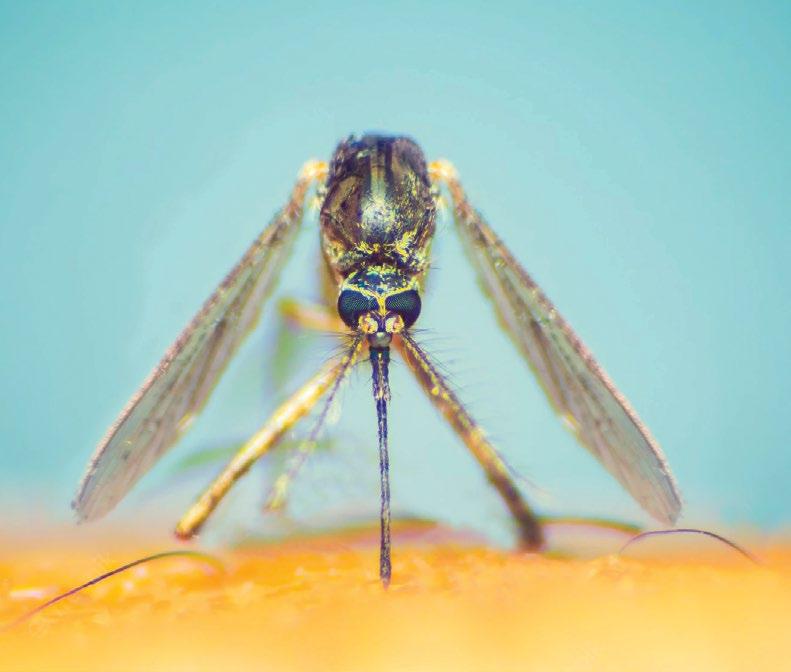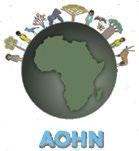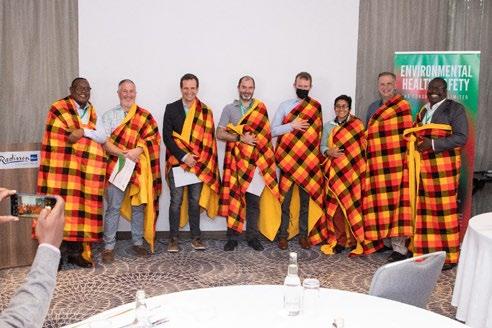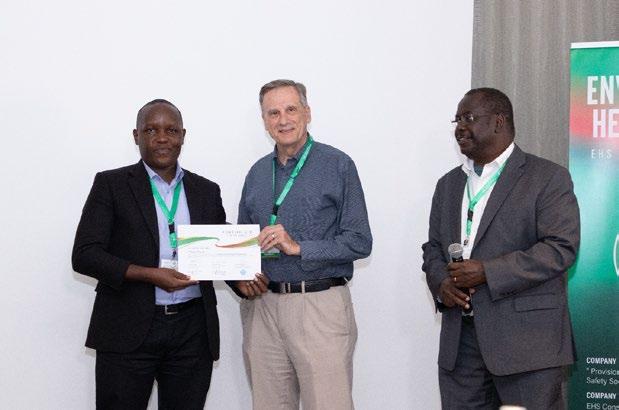








An objective of the African Genetic Biocontrol Consortium is to provide a platform for raising awareness of ongoing research, field trials, and release of genetic biocontrol agents to reduce malaria incidences, especially in Africa.

On20th August 2022, the world commemorated World Mosquito Day. World Mosquito Day is recognized every year on August 20 and marks the anniversary when Ronald Ross discovered that mosquitoes transmit the parasite that causes malaria in 1897. The significance of observing this day is to raise awareness of role of mosquitos as vectors in the transmission of malaria. Ross, a British Army Surgeon made this discovery while working in India. He proved that mosquitoes transmit malaria by identifying pigmented malaria parasites in mosquitoes that fed on an infected patient.
This discovery revolutionized our knowledge of the disease and led to new preventive measures. Ross won the Nobel Prize for Physiology or Medicine in 1902. Ross’ discovery revolutionized our understanding of the disease and led to increased awareness about malaria prevention.
According to the World Health Organization (World Malaria Report), there were 241 million cases of malaria in 2020 compared to 227 million cases in 2019. The estimated number of malaria deaths stood at 627 000 in 2020 –an increase of 69 000 deaths over
the previous year. Malaria is a life-threatening disease caused by parasites that are transmitted to people through the bites of infected female Anopheles mosquitoes. It is preventable and curable. Africa carries a disproportionately high share of the global malaria burden. In 2020, the region was home to 95% of malaria cases and 96% of malaria deaths. Children under 5 accounted for about 80% of all malaria deaths in the region.
African Genetic Biocontrol Consortium commemorates World Mosquito Day
One of the applications of new technologies such as gene drive is in public health, whereby it is used to suppress or eliminate
mosquitos responsible for causing vector-borne diseases such as malaria. An objective of the African Genetic Biocontrol Consortium is to provide a platform for raising awareness of ongoing research, field trials, and release of genetic biocontrol agents to reduce malaria incidences, especially in Africa. The Consortium acknowledges that given the current state of research, it is likely that the first potential use of gene drive approaches could be to support control and elimination of malaria in Africa. Decision making about the benefits and risks of gene drive approaches must be led by those who would be most directly impacted by their use.
The African Genetic Biocontrol Consortium has continually raised awareness of disease carrying mosquitos through its communication channels such as newsletter, website, and social media platforms. In collaboration with Target Malaria, the Consortium shared facts about malaria to raise awareness. Some of the interesting facts shared about mosquitos include:
Mosquitoes are the deadliest animal.
Only females bite—and only when breeding.
Mosquitoes aren’t attracted to light.
Hypodermic needles are inspired by mosquitoes.
All



The


Recent advances in the fields of synthetic biology and gene editing have led to the development of a wide range of new techniques and proposed applications of genetic technologies. Many of these have significant implications for development policy aims, such as reducing the incidence of deadly diseases and helping to prevent or reverse biodiversity loss. Some may help restore ecosystems and control invasive alien species, while others may be used to control populations
of mosquitoes and other disease vectors.
Regulation and oversight of the processes through which these technologies are developed and potentially deployed is essential, to ensure research and use are conducted in a manner that is safe and responsible. This ranges from issues related to biosafety to research ethics and the engagement of affected communities. Key to this will be effective management procedures, regulatory frameworks, and decisionmaking processes.
Gene drive is one of the emerging technologies being harnessed to create mosquitoes capable of controlling vectorborne diseases in Africa. Several organizations in the world and Africa have developed or are in the process of developing genetically modified mosquitoes, with or without gene drives. While the end outcome of disease control is desirable, a thorough assessment of the benefits and risks of the technology in the African context is required.
The African Genetic Biocontrol Consortium recently hosted a training workshop held at Radisson Blu Hotel and Residence Nairobi-Arboretum Park Lane as from July 16-18,

2022, Nairobi, Kenya. The aim of the Workshop was to provide an opportunity to a selected group (10) of professionals in Africa with prior experience conducting or supporting
Outcome of the Training Workshop on New Tools for Risk Assessment and their Application in Decision-making Process for Testing and Deployment of New and Emerging Genetic Biocontrol Technologies
risk assessments performed by national regulatory agencies to gain an initial exposure to methods of qualitative, semiquantitative, and quantitative risk assessment, complementing the methods they currently use in their countries.
The main gaps identified by the groups (Appendix 3). in the decision-making process for genetic biocontrol products included:
Inadequate capacity for evaluation of GMOs due
to limited human and infrastructural resource which include IT and accredited facilities.
Scientists and researchers lack capacity to develop quality proposals for funding and dossier for regulatory approvals.
Poor communication between GM regulators, developers, and the public.
Need to strengthen Partnerships and Collaboration among countries and institutions through bilateral agreements and regional harmonization.
Accredit more laboratories and institutions in the region to undertake risk assessment
There is limited knowledge in risk assessment of the emerging technologies for genetic biocontrol products, such as genome editing / Gene Drive
Need to strengthen IBCs in the continent to strengthen decision-making processes in the continent.
The participants agreed that the new tools for risk Assessment (RA) of GMOs and GM biocontrol agents should consider the following criteria:
Combined use of both Quantitative and Qualitative risk assessment (RA).
Consider adoption probabilistic approaches and modelling during risk assessment in the decisionmaking process for GMOs in Africa.
Enhanced capacity for effective communication that reduces misinformation during public engagement and risk communication.
Strengthen GMO testing and detection laboratory capacity and certifications.
Need to strengthen IBCs in the continent to strengthen decision-making processes in the continent.
The group activities provided a consensus recommendations and way forward in the African continent which include the need for the Consortium and partners to consider:
Initiating training in the use of quantitative and qualitative risk assessment to regulators, developers, scientists, and researchers in decision-making process
for GMOs and new tools in Africa.
Supporting scientists and developers to develop harmonized SOPs and guidelines to support IBCs in the region to undertake risk assessment and development of regulatory dossiers.
Use CSIRO’s elicitation reports to develop suggestions for eliciting new GMO projects in countries.
Participants and facilitators of the workshop were awarded Certificates of Training and Certificate of Appreciation for making the 3-day workshop a success. Also, AGBC staff were awarded appreciation certificate by the Consortium.

wish to let you
Genetic Biocontrol
sponsorship from GeneConvene Global Collaborative
Health
5-day
genetic biocontrol
IBC, Institutional Biosafety
main goal of this event is to promote the professional development of IBC members by providing the best practices on function and administration of an Institutional Biosafety Committee (IBC). Participants will undergo a practical hands-on training on how to review an application dossier and to develop regulatory decision-making reports and communication.
also provide the participants with an opportunity to learn how to develop/review their National IBC
Forum
support Institutional oversight on genetic biocontrol technologies and research
understand the range of
IBC
within
how to review an application dossier
to develop decision-making
IBC Guidelines that support oversight on genetic biocontrol technologies and research in Institutions.
Eligible participants should be nominated by the Institutional Director/ Responsible Person in your Organization using the NOMINATION FORM attached https:// bit.ly/3B5VZTD
Three (3) eligible members preferably the IBC Chair, Institutional Biosafety Officer (BO) or related position, and the Principal Investigator (PI) will be considered per Institution.
exhibition
Sponsorship: The cost of selected participant’s economy airline ticket, accommodation and incidentals will be provided by the GeneConvene Global Collaborative through the Consortium.
All nominations must be received 5 pm (EAT) by email by September 8,
additional


The GeneConvene Global Collaborative is an initiative of the Foundation for the National Institutes of Health that advances best practices and informed decision making for development of genetic biocontrol technologies to improve public health. GeneConvene offers technical information, advice, training, and coordination for research on gene drive and other genetic biocontrol technologies. Building on more than 10 years of work by FNIH on genetic biocontrol approaches for public health, the GeneConvene team is experienced with important technical, regulatory, and policy issues. GeneConvene currently focuses on exploration
of the potential of gene drive technologies to combat mosquitoborne diseases, particularly malaria transmission by Anopheles mosquitoes in Africa.
To support coordination among stakeholders that enables the development and dissemination of scientifically rigorous information, consensus best practices guidance and standards, and administrative, regulatory and technical advice and training that will advance responsible research, development and, if warranted, implementation of genetic biocontrol technologies to eliminate vector borne diseases and improve public health.

An environment in which gene drive and other genetic biocontrol technologies for public health can be safely, ethically and rigorously studied, developed, tested, and, if warranted by appropriate decision makers, responsibly implemented at appropriate scale to have positive health impact.
Public good: Deemed trustworthy in all plans and actions, and with all stakeholders; serving the public interest; information and output shared broadly as a public resource.
Proactivity: Forward-thinking to pave the way as technology
advances; prepared for risks to avoid or respond to crises.
Transparency: Openness in plans, actions, decision-making and data.
Neutrality: Not advocating on behalf of any stakeholder or product.

Scientific rigor: Supportive of a rigorous scientific process for gene drive development; credible source of evidence-based information on the science for all stakeholders.
Consensus building: Seeks effective partners, supporters and stakeholders; inclusive incorporation of voices from diverse stakeholders to reach consensus.